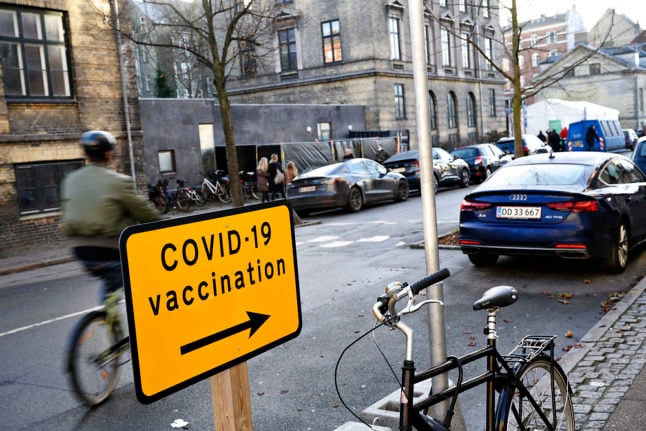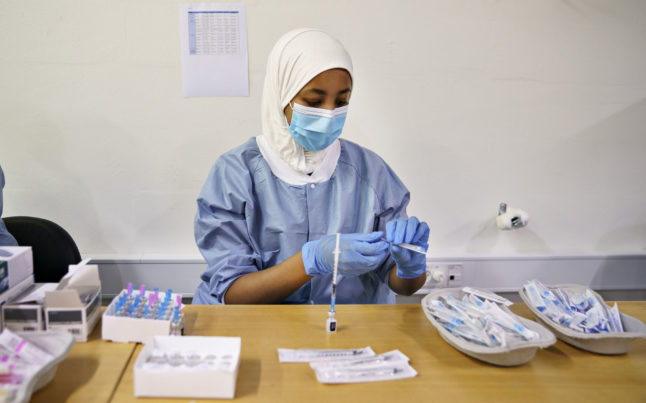People in the 18-39 age range will now be able to book a booster jab four and a half months (140 days or 20 weeks) after the final dose of the original course of vaccination.
Over-40s have already been offered earlier boosters since the middle of December. Previously, the booster Covid-19 vaccine was offered after five and a half months.
“We are in the middle of an epidemic with escalation infections and we need to prevent both transmission and disease with the Omicron variant. That is the reason (for bringing boosters forward),” Danish Health Authority director Søren Brostrøm said at a briefing, as reported by broadcaster DR.
“Almost exactly half of all infection cases we are seeing at the moment are in the age group 18-39,” he also said.
Covid-19 vaccinations including booster jabs are normally booked in Denmark via the vacciner.dk platform. The website is available in English and requires users to log in using the secure NemID digital signature.
READ ALSO: Denmark to require all travellers to take Covid-19 test for entry



 Please whitelist us to continue reading.
Please whitelist us to continue reading.
How does this work for those who received the J&J vaccine plus the moderna booster? Do they receive an additional booster invitation after 4.5 months after the first booster?